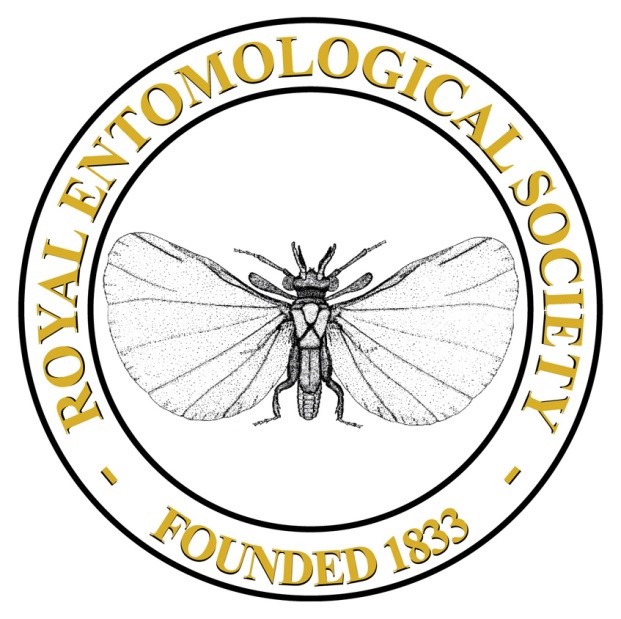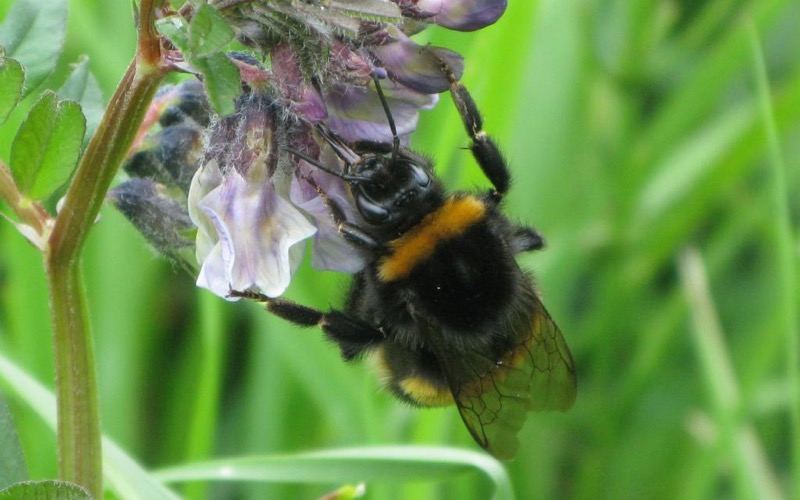Insects: What Have They Ever Done For Us?
Posted on: 01 September 2015
Although they are the most diverse animal group on earth, dominating terrestrial ecosystems since before the time of the dinosaurs, insects are often ignored or swatted away as pests. But less than 1% of insect species are in fact harmful or damaging to humans. Most insects are either harmless or actually beneficial, providing important “ecosystem services”. They pollinate the crops which are essential in providing us with food and luxury goods such as chocolate and coffee. They act as natural control agents of pests which would otherwise destroy crops and carry disease. In addition, they are crucial in recycling waste, breaking down dead leaves, and providing us with fertile soils; and their biology is endlessly fascinating.
No-one knows this better than the entomologists (scientists who study insects) who are converging at a major conference being held at Trinity this week. The conference, Ento15, hosted by the Royal Entomological Society, features invited speakers from the UK, USA, Germany, Australia, Sweden, Kenya and Ireland[1], and is highlighting research on the role of insects in our everyday lives and their value for human well-being. This is the first time in its 200 year history that the Royal Entomological Society has held its science meeting and international symposium outside the UK. Ento15 has been organised by an all-Ireland team including Dr Archie Murchie (Agri-Food and Biosciences Institute Northern Ireland), Dr Jane Stout (Trinity College Dublin), Dr Olaf Schmidt (UCD), Dr Brian Nelson (National Parks and Wildlife Service) and Catherine Bertrand (Butterfly Conservation).

At the welcome reception, Ento15 delegates will be treated to a first-hand demonstration of the potential role insects can play as food for humans, as they will be served with entomological canapés. This will highlight the fact that insects could be a sustainable source of protein in future human diets.
A Special Issue of the journal Ecological Entomology has been published to coincide with the conference. This issue, edited by Dr Jane Stout, Professor of Botany in Trinity’s School of Natural Sciences, and Dr John Finn, Teagasc, contains eleven reviews and original research articles from the plenary speakers at the conference, addressing the broad issue of ecosystem service provision by insects. This includes pest management, pollination and waste decomposition, as well as cultural services, and service provision in specific systems. Furthermore, this issue addresses key contemporary issues of economic value of services, how science can inform policy to enhance service providers, and the use of citizen science to measure service provision.
Entomology is an increasingly interdisciplinary subject. This is evidenced by the breadth of topics covered at Ento15, including many aspects of biology, especially in relation to agricultural production, but also education and outreach, bioengineering and economy. Understanding natural capital which includes all living creatures, including insects and how it delivers fundamental ecosystem services is crucial for a sustainable future. Trinity has researchers across several schools who work on insects including Dr Jane Stout, Natural Sciences; Professor David Taylor, Engineering; and Professor Mani Ramaswami, Genetics. Dr Stout’s group in Natural Sciences focusses on pollination services and leads the way in pollination research in Ireland. Dr Stout is heavily involved in developing the All Ireland Pollinator Plan which will be launched later this month (September 2015).

[1] Jan Bengtsson (Swedish University of Agricultural Sciences, Uppsala); Sarah Beynon (Dr Beynon’s Bug Farm Ltd, UK); Thomas Bolger (University College Dublin, Ireland); Jerry Cross (East Malling Research, UK); Dave Goulson (University of Sussex, UK); Alexandra-Maria Klein (University of Freiburg, Germany); Simon Leather (Harper Adams University, UK) ;Craig Macadam (Buglife, UK); Sarina Macfadyen (CSIRO Ecosystems Sciences, Australia); Lynn Dicks (University of Cambridge, UK); Charles Midega (International Centre for Insect Physiology and Ecology (ICIPE), Kenya);Michael D. Ulyshen (USDA Forest Service, USA)
